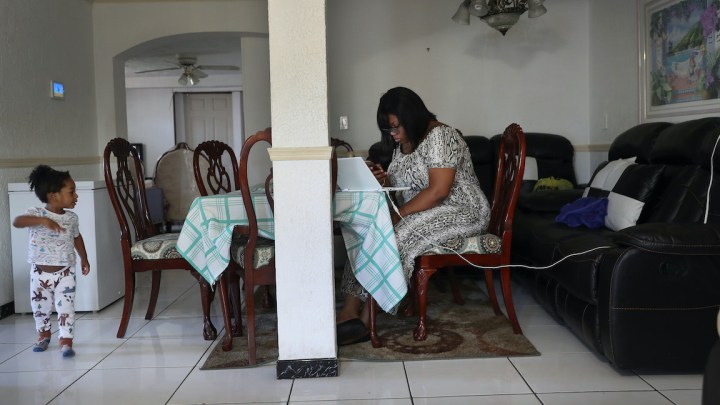
Do we really want to go back to the pre-pandemic economy?

It’s easy to look back at the pre-pandemic economy all starry eyed. Unemployment was low and pay for low-wage workers was rising.
“But I don’t want to suggest that that period was a golden era for American workers,” said Harry Holzer, a professor of public policy at Georgetown University and a former chief economist at the Department of Labor. He said we were making up for decades of job stagnation and loss before we got to relish a few good years of growth. And that isn’t even the benchmark we should use post-pandemic.
“Because the labor market would have grown in the interim year to year and a half. So it’s more about making up for the jobs not just that we lost, but that would have been created,” Holzer said.
For certain groups of people, the old normal wasn’t so good.
“We really need to do a better job at thinking about the economy not as this huge monolith, but as many different households, different levels of earnings, different levels of skills,” said Austin Clemens with the Washington Center for Equitable Growth.
Before the pandemic, he said income for high earners rose twice as much as that of low earners. Black workers were seeing historically low unemployment but were still almost twice as likely to be jobless as white workers. And lots of people were struggling in ways data didn’t catch.
“I think that a lot of women are not eager to go back to pretending that they don’t have families,” said Elizabeth Ananat, an economist at Barnard College.
Some women who stopped working to take care of their kids may not go back. Ananat said she’d like to see that become a new major economic indicator along with food insecurity and the unemployment rate for Black women.
“Because when that number goes down, things are going well for everyone,” she said.
But for now, a return to pre-pandemic levels gives us some assurance that the economy is turning a corner.
There’s a lot happening in the world. Through it all, Marketplace is here for you.
You rely on Marketplace to break down the world’s events and tell you how it affects you in a fact-based, approachable way. We rely on your financial support to keep making that possible.
Your donation today powers the independent journalism that you rely on. For just $5/month, you can help sustain Marketplace so we can keep reporting on the things that matter to you.

















